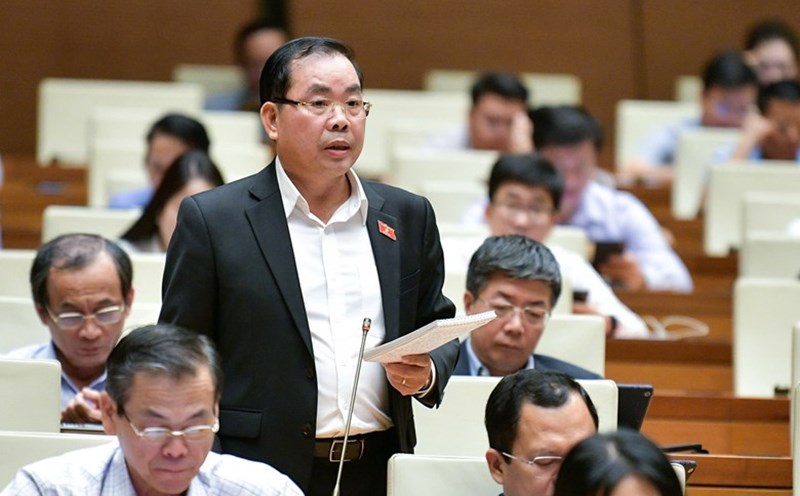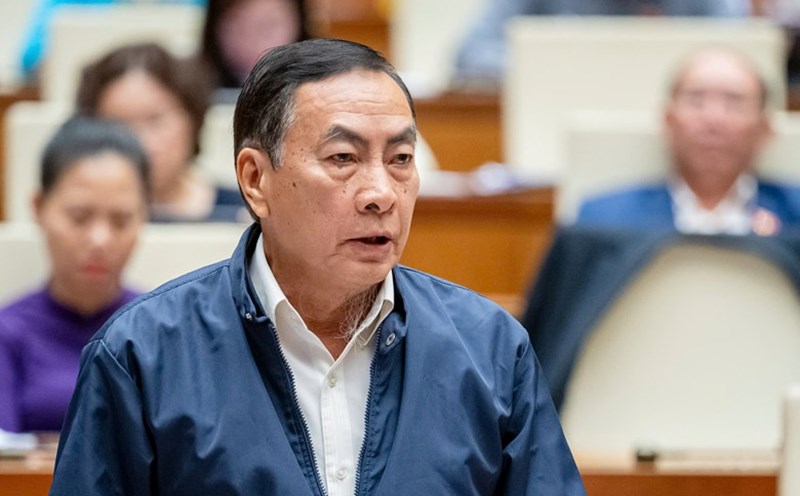Continuing the program of the 8th Session, discussing in groups about the draft Law on Special Consumption Tax (amended) on the morning of November 22, National Assembly delegate Nguyen Manh Hung (Can Tho Delegation) raised opinions related to the special consumption tax on tobacco.
Emphasizing that tobacco has negative effects on health, delegates are concerned about the two options for increasing absolute tax rates according to the roadmap from 2026 to 2030 in the draft.
According to the explanation of the drafting agency, in addition to the tax rate, adding this absolute tax will help reduce the number of smokers due to high cigarette prices; at the same time, there will be additional revenue.
Delegates expressed agreement on this policy but said that the specific figure of the absolute tax rate needs to be calculated appropriately, ensuring harmony between the State, businesses and users.
Delegates said that if the absolute tax rate as proposed is 2,000 VND or 5,000 VND for 2026 and 10,000 VND for 2030, it is a bit high and will greatly affect the production and business of enterprises, even the revenue of the State budget.
According to the delegate, in the domestic cigarette market, 88% of products are priced below VND20,000/pack; an increase of VND5,000-10,000/pack is too large an increase compared to the price. Products priced from VND20,000/pack or more account for only 12%.
Delegates said that such an increase would have a huge impact on the market, affecting the production and business of enterprises, and at the same time increasing cigarette smuggling, while preventing this situation is still difficult.
“The increase in domestic cigarette prices not only fails to prevent smuggling, but also increases it because the demand for cheap cigarettes shifts from domestic cigarettes to smuggled cigarettes,” the delegate stated.
The delegate added that in some places, in addition to the selling price not being higher than in the country, at some times, each pack of smuggled cigarettes is stuffed with about 1 dollar as a part to encourage more purchases.
A delegate from the Can Tho delegation said that if the number of smuggled cigarettes increases, many expenses will not be collected, such as import tax, VAT, environmental fees, etc.; consumption will decrease due to increased selling prices, which will affect the State budget revenue.
Delegates agreed that adjusting the absolute tax rate is necessary, but at what level is appropriate to ensure jobs for the workforce in this field, while also allowing businesses to adjust to the roadmap.
In addition, besides increasing absolute taxes, measures are needed to reduce the number of smokers and increase effective smoking cessation methods.
Delegate Dao Chi Nghia (Can Tho) also expressed concerns about the absolute tax rate. The delegate suggested that instead of giving a specific amount, a tax rate based on the selling price or cost of the product should be proposed as reasonable.
"Because there may come a time when, with the currency's depreciation rate, determining 2,000 VND/bag will no longer have much meaning," said the delegate.











